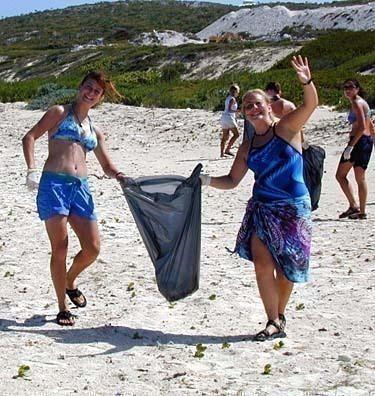
Fund Clean Beaches
Clean Four Local Beaches
Problem
For humans, marine debris fouls pristine beaches and poses health hazards. For aquatic wildlife, the effects can be more deadly. Sea birds and marine animals get caught in a variety of debris with often fatal results including suffocation and drowning. Strangulation and starvation result when animals mistake debris for food. Discarded fishing line is responsible for nearly half of all entanglements, with rope, fishing nets, and those ubiquitous plastic grocery bags following closely behind.
The Gift
With your help, students and staff at each of two School for Field Studies environmental research centers will join with community members four times a year to clean up local beaches. As part of their outreach activities, students at the Center for Marine Resources Studies in the Turks and Caicos Islands will organize beach clean ups at East Bay, Hawklands, and Shark Bay Beaches on South Caicos Island. At the Center for Coastal Studies in Baja California Sur, Mexico, students will join with a local organization, Magdalena Bay Keepers, to clean up trash along the shore of the bay in the fishing village of Puerto San Carlos. During a recent beach clean up in Mexico, 168 bags of trash were collected by 161 volunteers who cleaned two miles of coastline. Items collected included: 1,262 plastic and paper bags; 1,716 plastic bottles; 402 food containers; 197 disposable diapers; 57 fishing nets.
